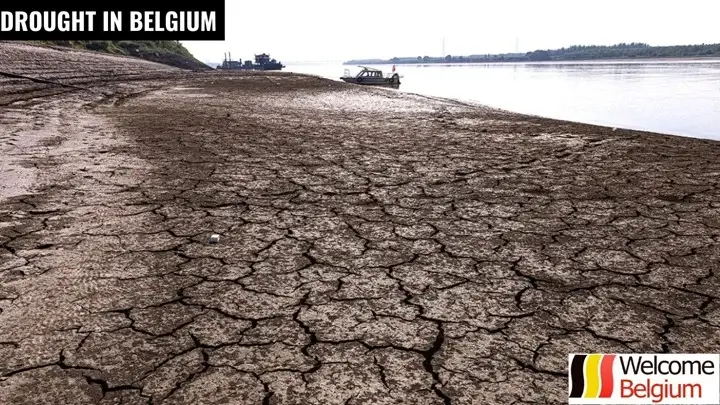Spring 2025 has brought the most severe drought Belgium has seen in the past 130 years. According to the Royal Meteorological Institute (KMI/IRM), total rainfall from March to May was only about 25% of the seasonal average. Such levels haven’t been recorded since the late 19th century.
The drought has affected the entire country, but East Flanders, Limburg, and Walloon Brabant have suffered the most. Soil moisture is critically low, riverbeds are drying up, and reservoirs are falling below safe levels.
Causes and effects of the 2025 drought
Meteorologists link the anomaly to a persistent high-pressure system over Central Europe that blocked Atlantic rain fronts. These conditions were worsened by high temperatures and low air humidity.
The drought has already had noticeable effects in several areas:
- Agriculture: Potato, sugar beet, and wheat yields are under threat. Some farmers have already lost parts of their crops.
- Drinking water: No shortages yet, but several municipalities are monitoring usage and may introduce restrictions.
- River navigation: Water levels in the Meuse and Scheldt are down, affecting shipping—especially cargo from the Port of Antwerp.
- Ecology: Dried-up wetlands are destroying habitats for birds, amphibians, and insects. Trees are shedding leaves earlier than usual.
- Health: Hot, dry air aggravates allergies, increases pollen and pollutant concentrations, and worsens respiratory conditions.
Regional authorities have activated emergency plans. Farmers can apply for compensation. At the same time, the Environmental Agency is urging the public to save water and reduce consumption both at home and in businesses.
Examples of concrete measures:
- Restrictions on car washing and garden watering in specific areas
- Weekly monitoring of groundwater levels
- Public awareness campaigns
- Investments in irrigation and water reuse systems
Environmental groups are demanding stronger government action to combat climate change. More frequent droughts are not an exception but the new normal that Belgium must learn to live with.
Looking ahead into a changing climate
Experts believe springs like this may become the standard. In the coming decades, Belgium is expected to face more periods of extreme heat and water shortages. This will require changes in land use, agriculture, and urban infrastructure.
In the meantime, residents are advised to:
- save water in daily routines
- support farmers using sustainable practices
- push authorities for stricter environmental measures
Spring 2025 is a wake-up call that shows how vulnerable Belgium is to climate change. What happens next depends on the actions the country takes today.



